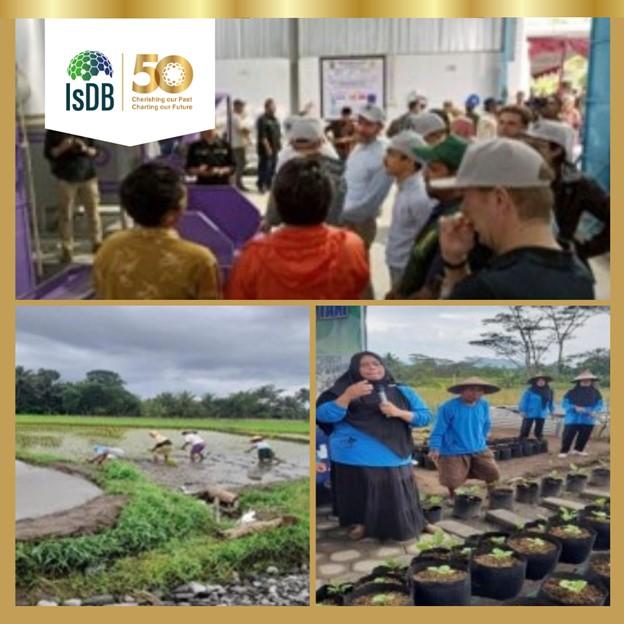From Bare Fields to Bountiful Harvests: A Family's Journey in Upland Indonesia
Imagine lush green hills stretching as far as the eye can see. Nestled amongst them, in the village of Bandong, south of Indonesia, lives Sri Rahayu, a smallholder farmer. Not long ago, her fields painted a different picture – one of struggle and uncertainty. Like many other farmers in Indonesia's uplands, Sri faced the challenge of balancing productivity with the fragile ecosystem.
These beautiful, yet delicate, highlands are home to a vibrant community of farmers growing rice, vegetables, and fruits. But their very livelihood is threatened by soil erosion whenever the natural vegetation cover is removed. This was a constant worry for Sri and her family.

Then, in September 2019, a ray of hope emerged. The "Integrated Farming System Development in UPLAND Indonesia" project, funded by the Lives and Livelihoods Fund (LLF), arrived on the scene. This ambitious initiative, co-financed by the International Fund for Development and the Indonesian government, targeted 13 districts, aiming to transform the lives of 30,000 families over five years. Sri's village, Bandong, was one of the lucky beneficiaries.
The project focused on three key areas: boosting productivity and building resilience, developing agribusiness opportunities, and strengthening local farming communities. It wasn't just about handing out solutions – it was about empowering people like Sri to take charge of their future.
One of the most impactful changes was the introduction of efficient irrigation systems. These systems allowed farmers to double-crop their rice, significantly increasing their yields. But there was another crucial element – the project championed organic farming. This not only protected the environment but also opened doors to lucrative markets for organically grown produce.
The project didn't stop there. Early maturing rice varieties were introduced, allowing for even more efficient cultivation. And to combat a major concern in the region – childhood malnutrition – some of these rice varieties were enriched with vital micronutrients like zinc.
Another success story was the promotion of home gardens. Led by enthusiastic women's groups, these gardens provided families with a year-round supply of fresh vegetables, improving their nutrition and generating additional income.
A cornerstone of the project's success was its focus on strengthening women-led farmer groups and cooperatives. These groups received training in crucial areas like agribusiness, organic certification, and market linkages. With this newfound knowledge, the women became empowered to manage their farms effectively and secure access to premium markets for their organic produce.
Today, there are 36 active farmer cooperatives, benefiting nearly 6,000 women farmers across the target districts. This number is set to grow significantly in the coming years, further empowering women like Sri and fostering a sense of community ownership over their agricultural future.
Standing proudly in her fields today, Sri beams with a newfound confidence. "The project was very helpful," she says. "It increased my income and that of my family. It also increased my farm's yields which can now support my children to go to school!"
Sri's story is a testament to the transformative power of the LLF project. It's a story of innovation, collaboration, and a commitment to environmental sustainability. This project paves the way for climate-smart agriculture, ensuring the well-being of farmers, the health of the land, and a brighter future for generations of families in Indonesia's uplands.